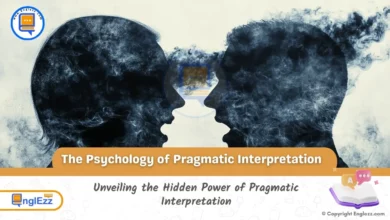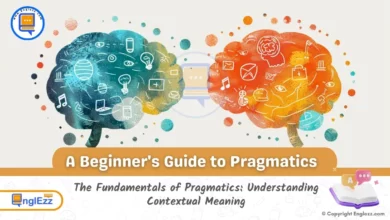In the intricate tapestry of human communication, there lies a fascinating dimension often overlooked yet profoundly influential – pragmatic power in discourse. This elusive force shapes our interactions, molding the very fabric of our relationships and societal structures. Diving into these subtle nuances not only unravels hidden dynamics but also sheds light on the intricate dance of power within conversations. Understanding pragmatic power is akin to deciphering a cryptic code, unlocking doors to new realms of perception and understanding.
Table of Contents
- 7 Secrets to Unveiling Pragmatic Power in Discourse
- Understanding Pragmatic Power
- The Role of Contextual Factors
- Strategies for Analyzing Pragmatic Power
- Implications for Academic Research
- Ethical Considerations in Studying Pragmatic Power
- Practical Applications and Real-world Impact
- Conclusion
- FAQs:
- Q: What is the significance of studying pragmatic power in discourse?
- Q: How do contextual factors impact pragmatic power?
- Q: What are some ethical considerations when researching pragmatic power?
- Q: How can insights from studying pragmatics be applied practically in everyday contexts?
- Q: What are some common methodologies for analyzing pragmatic power?
7 Secrets to Unveiling Pragmatic Power in Discourse
As we navigate through the labyrinthine intersections of linguistics and sociology, the study of pragmatic power emerges as a crucial key to unraveling complex social constructs and power dynamics. By peering beneath the surface of words exchanged and gestures conveyed, we unearth profound insights into how individuals exert influence, shape narratives, and navigate interpersonal territories.

The exploration of pragmatic power transcends mere linguistic analysis; it delves deep into the heart of human interaction, unveiling layers of agency, coercion, and negotiation that define our social landscapes. Embracing this paradigm shift opens doors to fresh perspectives and transformative understandings that ripple across diverse academic domains.
Understanding Pragmatic Power
Pragmatic power in discourse refers to the subtle ways in which individuals or groups assert influence, control, or authority through language use beyond the literal meaning of words. It involves understanding the underlying motives, intentions, and social dynamics embedded within conversations. For example, consider a workplace meeting where a manager uses phrasing like “I suggest we consider this approach,” instead of a more direct command. In this scenario, the manager is employing pragmatic power by framing their suggestions as polite invitations while subtly steering the group towards a specific decision without imposing overt authority.
One key tip when delving into pragmatic power in discourse is to pay attention not just to what is being said, but how it is being said. Non-verbal cues, tone of voice, and even silences can all convey significant layers of power dynamics in communication. For instance, in a negotiation scenario, a slight hesitation or a firm tone can hint at underlying power plays between the parties involved. By actively listening and observing these subtleties, one can uncover hidden dimensions of power within discourse.
The impact of pragmatic power on communication dynamics can be profound. In social interactions, individuals may strategically use language to maintain dominance or negotiate power relations. For instance, in negotiations between countries, diplomats may employ diplomatic language and nuanced rhetoric to assert their nation’s interests while preserving diplomatic relationships. The ability to recognize and interpret these subtle linguistic cues is crucial for navigating complex power structures within various contexts. However, these nuances are often challenging to decipher due to cultural differences, individual communication styles, and implicit societal norms that shape interactions.
Recognizing and interpreting pragmatic power cues require a keen awareness of non-verbal communication signals, intonation patterns, word choice, and contextual factors influencing the conversation.
- For instance, during a political debate, candidates may engage in verbal jousting not only through what they say but also through how they say it – emphasizing certain arguments with gestures or tone variations.
Unraveling these layers of meaning demands sensitivity to social hierarchies, historical precedents, and situational contexts that inform power dynamics within discourse. Therefore, grasping the complexities of pragmatic power necessitates a nuanced understanding of linguistic subtleties and sociocultural influences at play in everyday interactions.
The Role of Contextual Factors
In the realm of discourse analysis, contextual factors play a pivotal role in shaping pragmatic power dynamics. Cultural background, for instance, can significantly impact how individuals navigate power in communication. In some cultures, indirect forms of speech may be perceived as polite and deferential, while in others, directness is valued as a sign of honesty. These nuances in cultural norms can influence power imbalances within conversations.
- For example, in hierarchical societies, individuals may adjust their language use based on the social status of their interlocutors to either assert dominance or show respect.
Moreover, social status is another contextual factor that influences pragmatic power in discourse. Individuals with higher social status may exert more power inherently through their positions in society or organizations. This dynamic can manifest itself subtly in conversations through tone of voice, choice of words, and non-verbal cues. Understanding these power dynamics is crucial for researchers and linguists studying interactions within societal structures to dissect the underlying power struggles or agreements that shape communication patterns.
Historical context also plays a vital role in shaping pragmatic power dynamics. Past events, traditions, and systemic inequalities inform the way individuals engage with each other verbally. For instance, historical injustices can create lingering power differentials that surface within discourse settings. By delving into these historical contexts, researchers can uncover hidden layers of power dynamics at play in contemporary conversations and better comprehend the intricate interplay between past and present influences on pragmatic power distribution within various social contexts.
Strategies for Analyzing Pragmatic Power
Understanding the intricacies of pragmatic power in discourse requires a thoughtful approach to analysis. Researchers and academics utilize various methodologies and approaches to dissect the underlying power dynamics present in communicative exchanges. Quantitative techniques involve measuring and quantifying specific aspects of language use, such as frequency of certain speech acts or patterns of turn-taking in conversations. On the other hand, qualitative methods delve into the nuanced meanings behind linguistic choices, considering context, tone, and social cues that shape interactions. By comparing these two approaches, scholars can gain a comprehensive understanding of how pragmatic power operates within discourse.
To illustrate the application of these analytical strategies, consider a case study where researchers analyzed workplace communication to uncover pragmatic power dynamics. Through qualitative analysis, they observed how individuals in positions of authority used subtle language cues to assert dominance during meetings, influencing decision-making processes subtly but significantly. In comparison, a quantitative study might focus on analyzing email correspondence within an organization to quantify patterns of deference or assertiveness based on hierarchical structures. Both approaches reveal different dimensions of pragmatic power at play in professional settings.
Furthermore, specific analytical strategies such as conversation analysis or critical discourse analysis are commonly employed in studying pragmatic power within discourse. Conversation analysis allows researchers to dissect the sequential unfolding of interactions, highlighting moments where individuals exert influence through speech acts like interruption or silencing. On the other hand, critical discourse analysis examines how power structures manifest through language use by analyzing ideologies embedded in texts or speeches. These tools enable scholars to uncover hidden layers of pragmatic power that may not be immediately apparent in everyday communication contexts.
In essence, by employing a combination of quantitative and qualitative methodologies along with specialized analytical techniques, researchers can unveil the intricate workings of pragmatic power within discourse. These strategies not only enhance our understanding of communication dynamics but also shed light on how power relations shape social interactions across various contexts and environments.
Implications for Academic Research
Understanding the intricate nuances of pragmatic power in discourse has profound implications for academic research within the realms of linguistics and sociology. By delving into how language can be strategically used to wield power, researchers can unravel deeper layers of societal structures and interpersonal dynamics. In the field of linguistics, grasping pragmatic power sheds light on the subtle ways in which language influences social hierarchies and power distribution within conversations.
- For instance, examining how indirect speech acts are employed by individuals in positions of authority to assert dominance or control over interactions reveals valuable insights into social power dynamics.
Moreover, in sociology, understanding pragmatic power paves the way for exploring issues related to identity construction, cultural norms, and structural inequalities within different communities. Researchers can ask key questions such as how do sociocultural factors impact the manifestation of pragmatic power in communication patterns across diverse populations?
By probing into these inquiries, scholars can deepen their understanding of how language reflects and reinforces power differentials within societies. This exploration opens up avenues for interdisciplinary collaborations between linguists and sociologists to collectively unravel the multifaceted dimensions of power imbalances embedded in communicative exchanges.
Understanding cultural nuances is paramount when analyzing pragmatic power. Different cultures might ascribe varying degrees of significance to certain linguistic strategies or non-verbal gestures that signal authority or submission. For example, a direct approach may be perceived as assertive in some cultures and impolite in others. By considering cultural contexts in discourse analysis, researchers can avoid misinterpretations based on their own cultural biases and gain a more holistic understanding of power dynamics at play.
Interdisciplinary collaborations offer a synergistic approach to studying pragmatic dimensions within discourse analysis. By bringing together experts from various fields such as psychology, anthropology, and communication studies, researchers can enrich their perspectives and methodologies when investigating the intersection of language use and power dynamics.
- For example, a collaborative research project that combines linguistic expertise with sociological theories could shed light on how historical contexts shape contemporary discourses around privilege and marginalization.
These partnerships not only expand the breadth of knowledge but also foster innovative approaches to unraveling the complexities surrounding pragmatic power in diverse social environments.
Ethical Considerations in Studying Pragmatic Power
When diving into the realm of pragmatic power within discourse analysis, researchers are met with a multitude of ethical considerations that demand careful navigation. One prevalent challenge lies in ensuring that the study and dissemination of findings do not inadvertently reinforce existing power imbalances or stereotypes.
- For example, when exploring how subtle linguistic cues can influence power dynamics between genders in professional settings, researchers must tread cautiously to avoid reinforcing gender biases or perpetuating harmful stereotypes through their analyses.
Researchers shoulder a significant responsibility when handling sensitive data pertaining to power dynamics in communication. It is imperative to prioritize the protection of participants’ identities and confidentiality, especially when delving into topics like workplace hierarchies or intercultural communication power differentials. Ensuring informed consent and anonymizing data effectively are key strategies for upholding ethical standards in research on pragmatics and power relationships. Moreover, researchers need to be mindful of the potential impact their findings may have on individuals or communities involved, taking proactive steps to mitigate any harm that could arise from disclosing sensitive information.
To maintain high ethical standards while conducting studies on pragmatic power, transparency and open communication throughout the research process are paramount. Researchers should clearly communicate their methodologies, goals, and potential implications of the study to participants, fostering trust and ethical engagement. Additionally, engaging in reflexive practices to critically assess one’s own biases and preconceptions can help mitigate unintentional harm or misinterpretation of results.
By upholding ethical principles throughout their research endeavors, scholars contribute to building a more ethically sound foundation for understanding pragmatic dimensions of power in discourse while prioritizing the well-being and dignity of those involved in the research process.
Practical Applications and Real-world Impact
Understanding the pragmatic dimensions of power in discourse can offer valuable insights that extend beyond academic realms into everyday life. By delving into how communication dynamics are shaped by pragmatic power, individuals can enhance their interactions in various contexts. For instance, in a professional setting, being attuned to subtle indicators of pragmatic power can aid in navigating office politics effectively. Recognizing when someone is exerting influence through indirect means or non-verbal cues allows for a more strategic approach to communication.
Moreover, heightened awareness of pragmatic power can lead to the development of more nuanced and tailored communication strategies within professional settings. For instance, understanding how different individuals within an organization wield power through language choices or rhetorical devices can help one adapt their own communication style to better resonate with diverse stakeholders. This adaptability not only improves interpersonal relationships but also fosters a more collaborative and productive work environment where power differentials are acknowledged and managed constructively.
On a broader scale, a deeper comprehension of pragmatics in discourse has the potential to impact societal structures by shedding light on power dynamics that might otherwise go unnoticed. By critically analyzing how language is used to establish authority, reinforce social hierarchies, or perpetuate systemic inequalities, researchers and practitioners can advocate for change and challenge oppressive discourses.
It’s crucial to analyze pragmatic power within its broader context. This means considering not only the immediate conversational setting but also the historical background, social structures, and individual identities involved. For instance, analyzing a political speech requires understanding not just the words spoken but also the speaker’s political affiliations, audience demographics, and societal norms shaping the discourse. By contextualizing analysis, researchers can unravel deeper layers of pragmatic power embedded within complex interplays of factors.
This insight may fuel movements towards greater inclusivity, social justice, and equity by dismantling linguistic constructs that uphold power differentials unjustly. Ultimately, unveiling the pragmatic dimensions of power in discourse holds transformative potential for both individual interactions and societal paradigms.
In conclusion, the exploration of pragmatic power in discourse has unveiled seven secrets that offer profound insights into communication dynamics and power structures within interactions. The practical applications discussed highlight how this knowledge can be leveraged for more effective communication in professional settings. By understanding these secrets, individuals can navigate conversations with increased awareness of the subtle nuances that influence power dynamics.
- For instance, acknowledging the importance of non-verbal cues in conveying power can help individuals better assert themselves during negotiations or presentations.
Additionally, being attuned to contextual factors like cultural background and social status enables a more nuanced interpretation of power imbalances in conversations. By incorporating these learnings into daily interactions, readers can enhance their communication skills and foster more inclusive dialogues.
As we reflect on the journey through the pragmatic dimensions of power in discourse, it is crucial to recognize the transformative potential of integrating these insights into academic research and personal interactions alike. Embracing interdisciplinary collaborations and exploring new research questions could further deepen our understanding of how pragmatics shapes communication patterns across various contexts. Therefore, I urge readers to embrace these seven secrets and apply them proactively in their respective fields to advance scholarship and promote meaningful dialogues that empower individuals and communities.
Conclusion
In conclusion, the exploration of pragmatic power in discourse has revealed seven secrets that shed light on the intricate dynamics of communication. By delving into how contextual factors shape power relations, examining various analytical strategies, and reflecting on ethical considerations, we have gained a deeper understanding of how power operates within language interactions. These insights not only have implications for academic research in fields like linguistics and sociology but also carry practical applications in real-world scenarios.
As we recapitulate the seven secrets uncovered – from understanding the nuances of context to recognizing hidden layers of power – it becomes evident that incorporating these learnings can revolutionize our approaches to communication. By arming ourselves with the knowledge of pragmatic power, we empower ourselves to navigate professional environments more effectively, foster inclusive dialogues, and contribute to positive societal changes through mindful interaction. Let us embrace these revelations and strive to integrate them into our daily interactions, whether in academia or our personal spheres.
FAQs:
Q: What is the significance of studying pragmatic power in discourse?
A: Studying pragmatic power allows us to uncover hidden layers of influence and control within communication interactions, leading to a deeper understanding of social dynamics.
Q: How do contextual factors impact pragmatic power?
A: Contextual elements such as culture, social status, and historical background play crucial roles in shaping how pragmatic power manifests in discourse exchanges.
Q: What are some ethical considerations when researching pragmatic power?
A: Researchers must handle sensitive data ethically when delving into issues related to pragmatic power, ensuring respect for all parties involved in communication analyses.
Q: How can insights from studying pragmatics be applied practically in everyday contexts?
A: Awareness of pragmatic power can lead to improved communication strategies in professional settings and may contribute to fostering more effective dialogues across diverse societal structures.
Q: What are some common methodologies for analyzing pragmatic power?
A: Quantitative and qualitative approaches are often used to dissect pragmatic power dynamics, with case studies serving as valuable illustrations of analytical strategies employed in discourse analysis.









Master discourse with these 7 secrets to pragmatic power! Learn transformative techniques that will elevate your communication and persuasion skills.